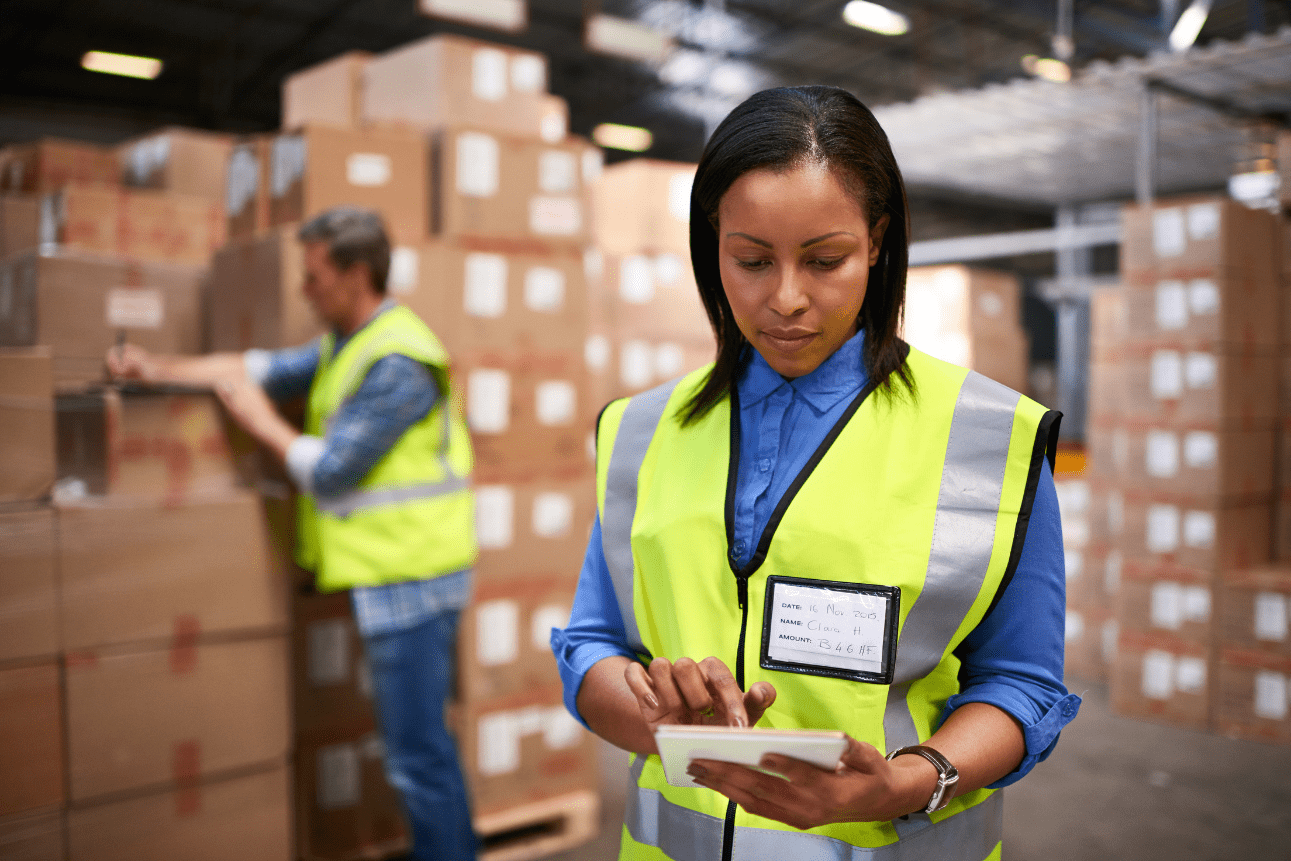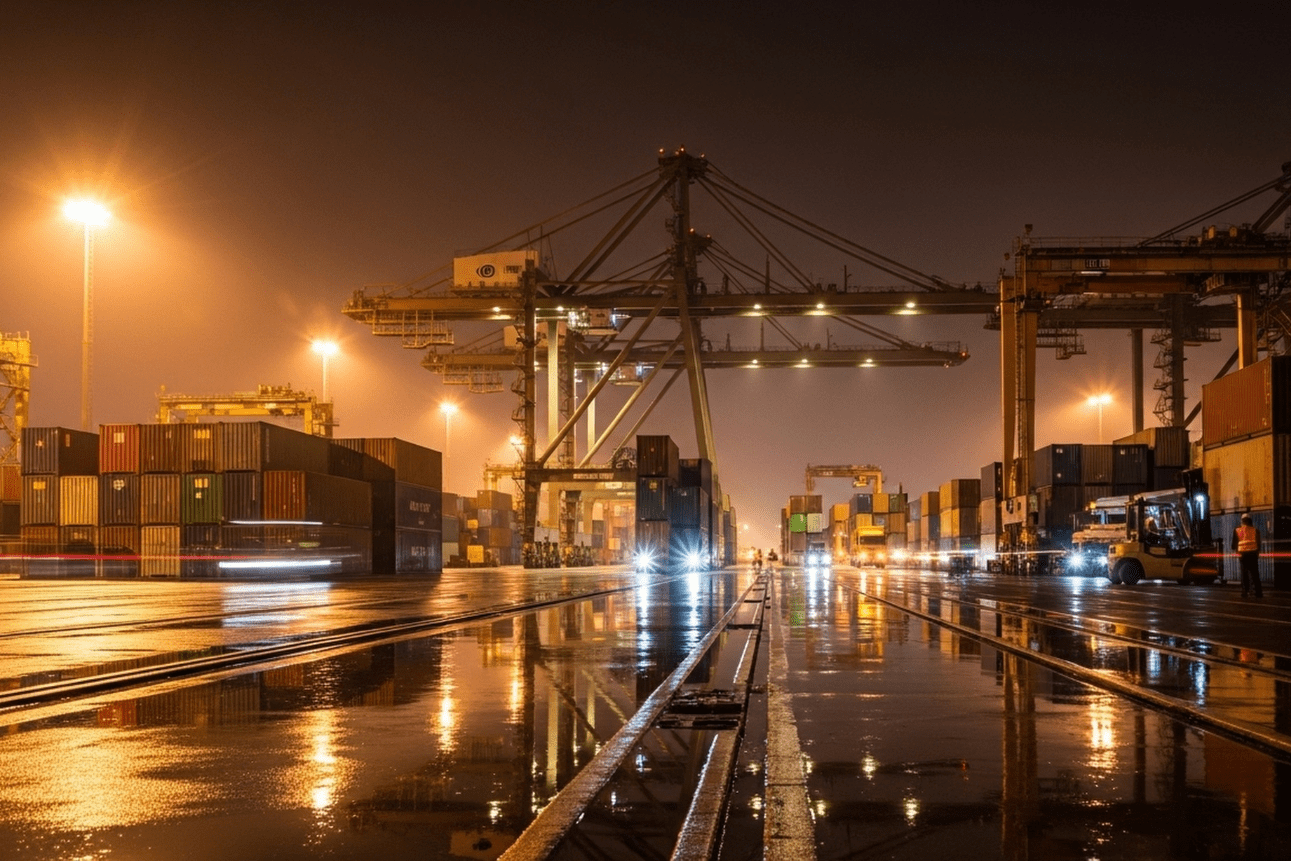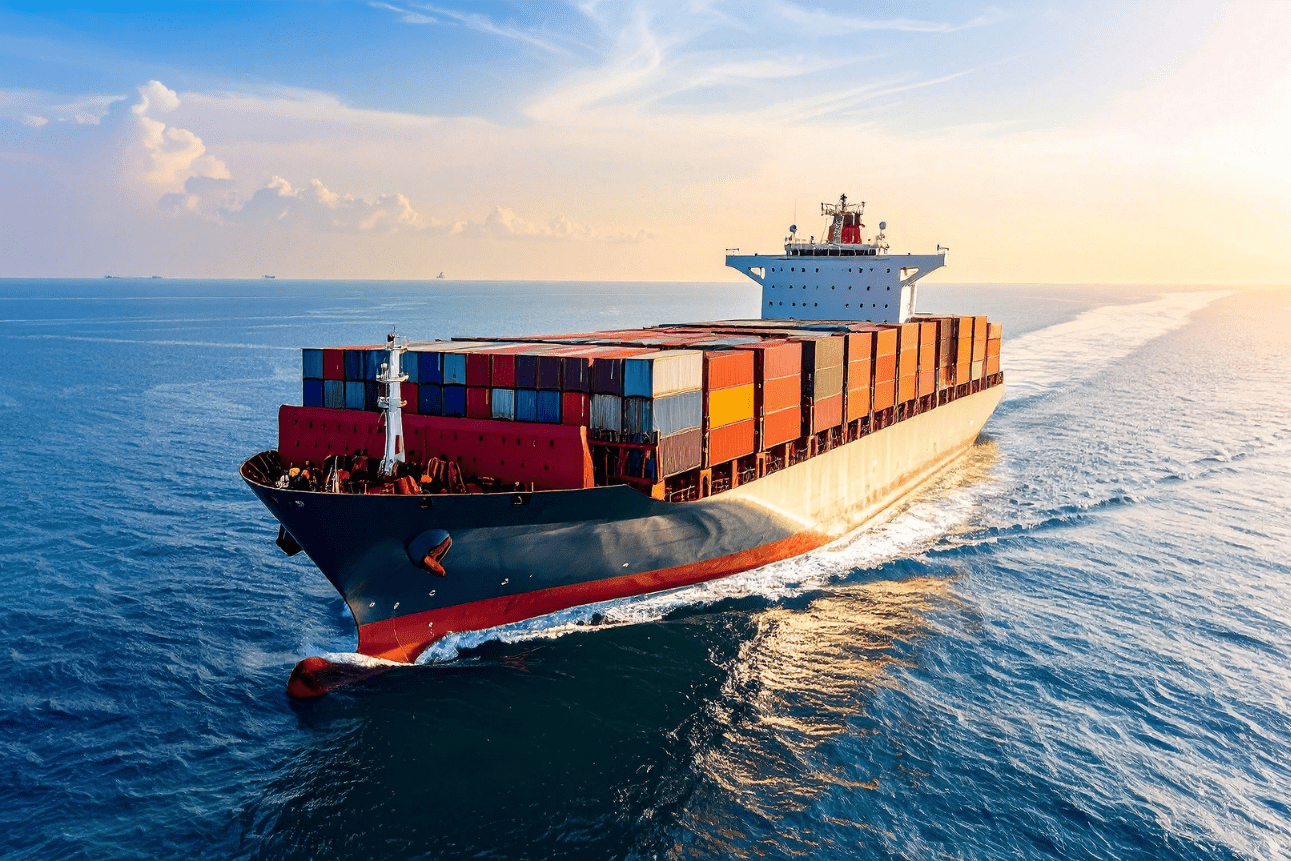AI in Logistics: Transforming Outsourcing in 2025
The logistics industry is one of the most critical sectors globally, handling the flow of goods, from raw materials to finished products, across vast distances. However, as consumer expectations rise and the pressure to deliver faster and more cost-effectively grows, the industry is undergoing a digital revolution. Enter AI in logistics—a game-changer that’s reshaping how logistics outsourcing works.
But how exactly is AI and automation transforming logistics outsourcing? Let’s break it down.
AI in Logistics: The Future is Now
When you think of AI, you probably picture futuristic robots or sci-fi movies. But in reality, AI logistics solutions are already here, working behind the scenes to optimize supply chains, improve delivery times, and reduce operational costs.
From smart inventory management to predictive maintenance of equipment, AI is providing logistics companies with the tools they need to operate smarter and faster. These technologies automate routine tasks, offer real-time insights, and enhance decision-making processes—ultimately improving the overall efficiency of logistics outsourcing.
How AI and Automation Are Changing the Game
1. Optimized Routing and Delivery
Gone are the days of relying on outdated maps and basic GPS systems. With AI in logistics, transportation companies now have access to advanced route optimization tools that can:
- Analyze traffic patterns in real-time
- Predict delays and suggest alternate routes
- Maximize fuel efficiency and reduce delivery times
Result: Faster, more reliable deliveries that meet (and exceed) customer expectations.
2. Predictive Analytics for Demand Planning
Imagine being able to predict the future. AI and automation make that possible—at least when it comes to logistics.
By analyzing historical data, customer trends, and seasonal fluctuations, AI systems can help logistics providers forecast demand with incredible accuracy. This allows them to:
- Adjust inventory levels accordingly
- Allocate resources where they’re needed most
- Avoid stockouts or overstocking, saving both time and money
Outsourcing partners equipped with AI logistics solutions are able to provide businesses with smarter and more cost-effective supply chain management.
3. Warehouse Automation
In a traditional warehouse, workers move inventory manually—lifting, sorting, and packaging products to ship out. However, automation technologies powered by AI, such as robots, drones, and automated storage systems, are revolutionizing this process.
AI-powered warehouse automation helps reduce human error, increase speed, and lower labor costs. It also allows for 24/7 operation, without the limitations of human fatigue. Logistics outsourcing providers who incorporate these technologies are able to offer more streamlined, efficient, and scalable warehouse operations.
4. Smarter Customer Interactions with AI-Powered Chatbots
Customer experience in logistics often hinges on communication. Whether it’s providing updates on delivery status or answering queries about shipments, logistics companies must stay connected with their clients.
AI-powered chatbots and virtual assistants are stepping in to automate customer service interactions, allowing logistics providers to:
- Answer customer queries in real-time
- Resolve issues quickly without human intervention
- Provide 24/7 support, even during non-business hours
These systems are able to handle high volumes of requests simultaneously, ensuring that customers always get timely, accurate responses.
5. Automated Quality Control and Tracking
Quality control is paramount in logistics. AI and automation work together to track and verify product shipments, ensuring that items are in optimal condition before reaching the customer. Advanced AI-powered systems can:
- Scan and inspect goods for damage using computer vision
Monitor product conditions during transit - Track items with RFID tags, ensuring nothing gets lost
This level of automated tracking gives logistics providers—and their clients—peace of mind, knowing products are in safe hands.
The Benefits of AI and Automation in Logistics Outsourcing
The advantages of integrating AI logistics solutions into your logistics outsourcing strategy are vast. Let’s quickly recap:
- Cost Savings: Automation reduces the need for manual labor, streamlining operations and cutting down on overhead costs.
- Efficiency Gains: AI speeds up processes like routing, delivery, and inventory management, improving the overall workflow.
- Enhanced Customer Satisfaction: Faster deliveries, real-time updates, and improved communication lead to higher customer satisfaction.
- Scalability: AI and automation can quickly adapt to increasing demands, allowing companies to scale without significant operational hurdles.
- Risk Mitigation: With predictive analytics and automation, logistics providers can anticipate potential issues and take corrective action before they escalate.
AI and Automation Are Shaping the Future of Logistics Outsourcing
AI in logistics is more than just a trend; it’s a fundamental shift in how the industry operates. As logistics companies increasingly adopt automation and AI-powered solutions, the entire landscape of logistics outsourcing will continue to evolve.
For businesses looking to stay competitive, partnering with a logistics provider who embraces these innovations is no longer just an option—it’s a necessity. By leveraging AI and automation, logistics outsourcing can deliver faster, more reliable, and cost-effective solutions that keep customers happy and businesses thriving.
Are you ready to take advantage of the future of logistics? Let’s discuss how Superstaff’s AI logistics solutions can give your business the edge it needs.




